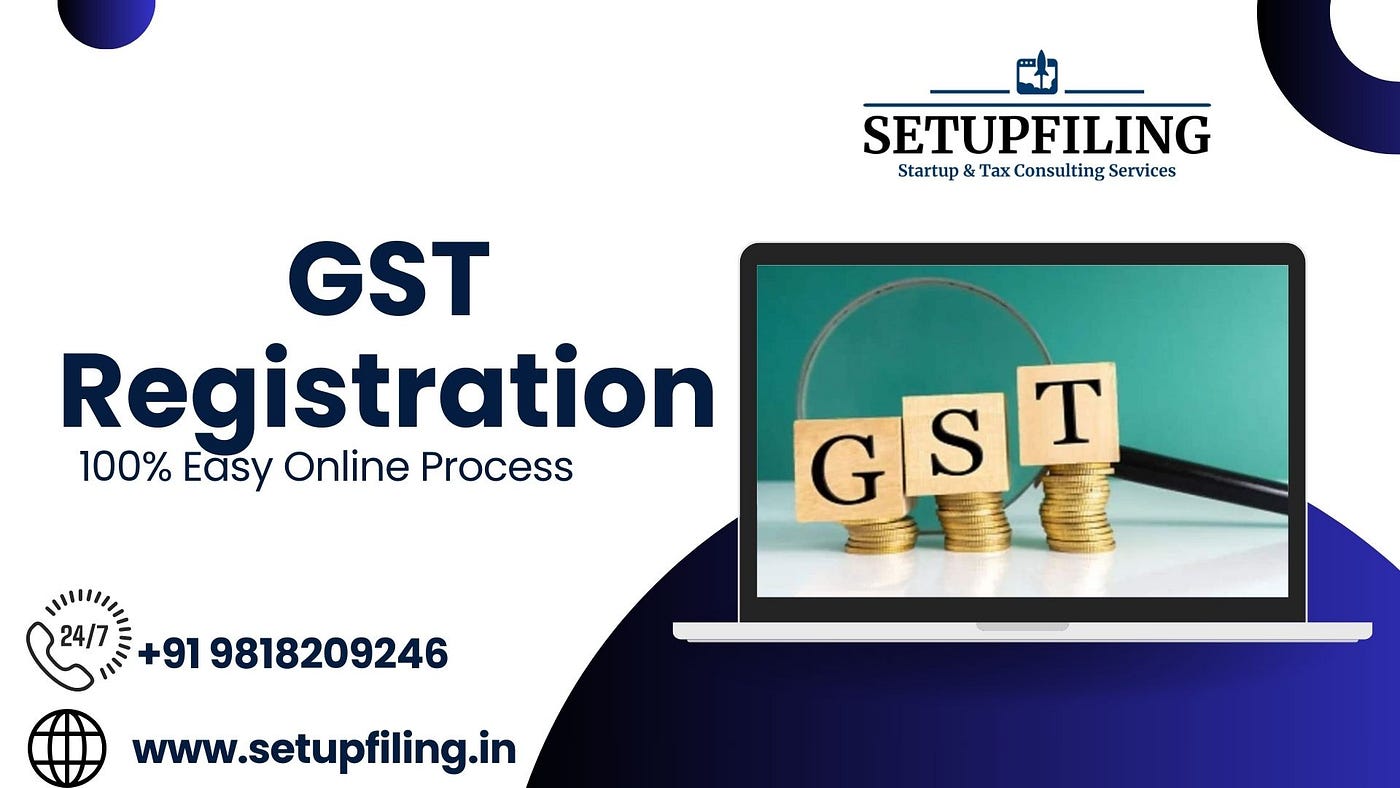Understanding GST Registration: Important Steps to Ensure Governing Compliance and Service Development
Browsing the world of Item and Provider Tax (GST) enrollment can be a crucial action for organizations intending to preserve compliance and foster development. The elaborate process of registering for GST demands an eager understanding of the essential actions included, from realizing the essential concepts of GST to thoroughly preparing the needed paperwork. Past just ticking off the governing checkboxes, mastering GST registration opens up a realm of possibilities for companies to strategically leverage this tax obligation framework to push their growth. Understanding the subtleties of GST enrollment is not merely an administrative need yet a critical step that can shape the trajectory of a company in the direction of lasting success.
Comprehending GST Basics
Recognizing the basics of Product and Provider Tax (GST) is important for companies to browse the complexities of tax conformity and economic administration effectively. GST is a value-added tax imposed on the supply of goods and services in India, intending to create a unified tax system across the country. Singapore GST Registration. Under GST, businesses require to sign up and acquire an one-of-a-kind GSTIN (Product and Solutions Tax Identification Number) to be certified with the legislation

Readying Necessary Records
To ensure compliance with GST enrollment demands, services must gather and arrange the required documents for the application procedure effectively. The crucial documents commonly needed for GST registration consist of evidence of service enrollment or consolidation, frying pan card of the company, identity and address proofs of promoters, photos, financial institution statements, and evidence of address of the workplace. Additionally, organizations might need to supply details of authorized notaries, organization activities, and turnover. It is critical to guarantee that all files are exact, approximately day, and meet the demands defined by the tax authorities to prevent delays or rejections in the registration procedure.
Organizing these papers in an organized fashion can enhance the application process and demonstrate business's commitment to governing conformity. Services should maintain both physical and digital copies of these files for very easy access and recommendation. By preparing the needed documents carefully, services can accelerate their GST registration process and focus on their core procedures with the assurance of governing compliance.
Online Registration Process
.jpg)
Conformity and Coverage Obligations
Upon successful registration on the GSTN portal and conclusion of the essential paperwork, companies have to abide by stringent compliance and reporting commitments to make certain regulatory adherence and functional openness. Conformity requirements under GST required exact and prompt declaring of different returns, such as GSTR-1 for external materials, GSTR-3B for monthly summary returns, and annual returns like GSTR-9. Additionally, companies need to integrate their sales and purchase information through GSTR-2A and GSTR-2B to case input tax obligation credit reports properly.
Preserving correct records of billings, accounting records, and other appropriate information is essential for GST compliance. Normal audits and analyses by tax authorities demand organizations to have precise documentation and reporting systems in position. Any kind of disparities or non-compliance can cause fines, penalties, and even suspension of GST registration.
To improve conformity processes, organizations can take advantage of GST conformity software application that automates return filing, conformity, and reconciliation monitoring. When required can better improve compliance initiatives and guarantee smooth operations within the important link GST structure., staying updated with governing changes and looking for expert advice.
Leveraging GST for Business Growth
One vital benefit of GST is the input tax credit score device, which enables businesses to claim credit histories for taxes paid on inputs. In addition, GST promotes transparency and liability in the tax system, which can help organizations develop trust with companions and customers.
In addition, GST registration can also open brand-new markets for services. Being GST-compliant can boost reputation and make it easier to increase operations across state borders. This not only raises market reach but also fosters an one-upmanship in the industry. By straightening with GST policies, services can adapt to altering market characteristics and remain in advance of the competitors. Essentially, leveraging GST for service development entails calculated preparation, efficient compliance, and a forward-looking technique to economic monitoring.
Verdict
In verdict, grasping GST enrollment is vital for making sure regulative conformity and promoting organization development. By comprehending the fundamentals of GST, preparing required files, completing the on-line enrollment procedure, and satisfying compliance and reporting commitments, organizations can utilize GST to their advantage. It is important for organizations to adhere to the laws and utilize GST as a tool for expanding their procedures and remaining competitive on the market.
Navigating the world of Product and Services Tax Obligation (GST) enrollment can be a critical step for organizations intending to preserve conformity and foster development. The essential documents commonly needed for GST registration consist of proof of business enrollment or consolidation, PAN card of check my source the identity, organization and address evidence of promoters, photos, bank declarations, and proof of address of the area of company.Start the GST registration procedure by navigating to the official online site designated for organization registration. When the account is established up, you can proceed with filling up out the GST enrollment application form by entering the necessary service information, including organization turnover, type, and address details.
By recognizing the basics of GST, preparing required papers, completing the on-line enrollment process, and satisfying conformity and reporting commitments, businesses can take advantage of GST to their benefit.
Comments on “Step-by-Step Process for Singapore GST Registration Explained”